|
I’ve never heard of the author and her short story collection turned out to be way longer than the original page count (erroneously listed when the Netgalley ARC first appeared) had led me to believe and so I read some of it and put it away. For a while.
This wasn’t a quality thing - the few stories I read were actually very good, if somewhat strangely ended (more on this later), it was simply the matter of my dislike for fat books and a giant TBR list to deal with. The other day, for some reason, I selected this collection again and this time stayed with it until it was over. The result is…well…wow. I mean, fat or not, this book has won me over. The stories have won me over. Nina Allan, the author I still haven’t heard of outside of this book but really ought to look up now, is, without a question, a master storyteller. It’s a striking quality, the one you recognize immediately in the way the narrative flows, in the way the characters come to life, in the way the stories play themselves like movies on the screen of your mind when you read them. It’s just so…seamless, so seamlessly perfect. That isn’t to say the stories themselves are perfect, although the majority are dangerously close, overall, they may not be, but then again, they are so much more than merely good. It took me a while to get used to the authors’ endings, which at first just seemed anti-climactic and bathetic. The stories are also very, very long, unwieldly so at times, practically novella- or novelette-sized. Maybe that’s just me, I am a sizist. Traditionally, I prefer my short fiction…well, short. But writing this good deserves exceptions. The collection ends with a nonfiction essay on the author’s love of esoteric European science fiction. Fairly random and it’s still so good and compelling. Just goes to show you what a good writer can do. Allan takes you away from this world with her tales. But she doesn’t take you to a happier world or worlds. The one she imagines in these occasionally tangentially interconnected stories is one devastated by climate change, bleak and quite sad. In other words, it’s very much like this one, but set in the not-so-distant future. No matter how expertly the author world-builds, it remains second-best to her character writing, but then again, her character writing is so superlative that most things would take a backseat to it. The emotional engagement of this reading experience alone... In so many ways, reading this collection was like taking a master class on writing short fiction. If that isn’t high enough of a praise, I don’t know what would be. Recommended. Thanks Netgalley.
0 Comments
Three generations of one family (all women, of course, because that’s what sells these days) come to a terrible reckoning with their past at a small village cottage.
The couple that’s living there currently, Saffy (the granddaughter) and her man are not the first inhabitants of number 9. This was a cottage they inherit from Saffy’s grandmother, who is now away with advance dementia. Saffy’s mom, Lorna, is off in Spain living her best life. All Saffy wanted was a larger kitchen. And then they found bones on her property. Two bodies’ worth of bones. Not quite an easy carefree inheritance she might have hoped for, but there it is. And so, the grandma is obviously hiding secrets, but uncovering what those may be from a dementia-addled mind won’t be easy. There’s a conventional investigation going on too, but really…this is a family business. And so, Lorna (a young hot mommy who Gilmored her baby out at 16) arrives from Spain and her and Saffy begin an investigation of their own. They will not like what they find, but eventually will learn to accept it. And so, yet another one of those thrillers, you know the kind, the ones that are so ubiquitously popular these days. Not the best of the bunch, but absolutely solid. Well plotted, well written, slightly too long but well-paced for its bulk, oodles of family drama with some very credible character writing and a few nice plot twists. If you ever thought Gilmore Girls might be spiced up quite nicely by a murder or two, if only to take attention away from that obscene bullet-train-paced dialogue, this ought to delight you. Plus, it’s British, which enhances all things in general. Entertaining. Fun was had, I’d likely read more by the author. Thanks Netgalley. I believe the enjoyment of this novel will be directly proportionate to how much the reader of it loves words. Which is to say that in a purely narrative manner, this book might leave something to be desired – its pacing is quite languorous, its protagonist is somewhat lackadaisical and vague in her motivations and yet, from the purely linguistic perspective the Liar’s Dictionary sings. It just isn’t the sort of song that everyone might be attuned to.
You get the exact idea for what sort of narrative this’ll be from the first chapter, which is a long and lovely letter to dictionaries, contemplating a perfect one for you. From there, the novel does acquire a more conventional alternating timeline narrative structure, with a woman in the present day working as an assistant tom a man desperately trying to uphold his family’s’ legacy by completing the long-ago abandoned dictionary project and a man in a distant past working for the same dictionary company albeit in its earlier more prestigious years, who, out of personal frustrations and disappointments, gets, shall we say, creative with his word entries. There’s a word for that…Mountweasels. Isn’t that great? Mountweasels are incorrect entries planted into a dictionary (or at atlas or some other sort of catalog). The present-day protagonist’s job is hunting those down, while also dealing with regularly phoned in death threats. The entire thing gets resolved in a surprisingly explosive manner for such a quiet production. And there you have it, a love song to dictionaries, words, and word lovers. Quite a lovely song if you get into it. It worked for me – I love words. Words and all the magical things you can do with them. I didn’t necessarily love the protagonists. The main one didn’t have much of a character except that she was inexplicably in the closet. And yes, for a young person in this day and age, living in a city as progressive as London and having parents who she admits would be ok with her being gay and a girlfriend who is strikingly patient about all of this, it’s inexplicable (and kind of sad) why someone would choose to remain in the closet. It’s never really properly explained, except that you get the idea she is a genuinely reticent and ambivalent sort of a person. And the other guy, sad in his own way, is something of a milquetoast. But that aside, fun was still had. It’s just too clever, too erudite, too splendidly vibrant in its displays of verbose virtuosity of a book not to enjoy. Plus, a surprisingly quick read. Recommended. A shadowy cabal of women dedicated to advancing women causes, that demands unquestioning unwavering loyalty and operates on girlpower basis of small (and not so small) mutual favors.
Where have I read that before? Oh, yeah, just recently in Catherine McKenzie’s latest, Please Join Us. And now, once again, here in The Collective. The comparison isn’t entirely fair, because The Collective came out first, but also impossible to avoid. And sure, in Please Join Us it was all about business and here it’s all about revenge for dead children, but still…it’s there. The thing is both are perfectly good thrillers. I’d go as far as to say this is a superior one, because PJU got too businessey toward the end and this stayed pure lean and mean vengeance machine and just continued throwing in one nice plot twist after another. It all began with an injustice. Cammie’s only child, a fifteen-year-old daughter went to a party where she was raped and left for dead and the boy responsible for it - a scion of a wealthy local family - got off scot free. This isn’t a sort of thing one just gets past and moves on and so for the last five years Cammie has been stuck in a sort of horrific limbo of anger and powerlessness. And then, she gets invited to an online site that seems catered just for her, the women on it understand her tragedy, share her frustration with the system, and, more importantly, are willing to do something about it. They don’t merely empower Cammie, they give her a chance to get even. And it all goes so swimmingly…until it doesn’t. Because girlpower or not, everyone has their own agenda, and you don’t have to know what it is to play right along into it. And once Cammie’s quest for revenge is sated, she begins to understand the grand design behind the network, she even begins tugging at the curtain to reveal the wizard behind it. So, there you have it, A real fun psychological thriller with some first-rate writing, especially character writing. This one had my attention engaged through and through, despite the admittedly unfair and frustratingly unavoidable comparisons to PJU. This is the original one out of the two, but it does seem to be written well along the themes of the day, especially with these sorts of thrillers. You got your secretive online networks, women protagonists, women antagonists, women, women, women usually going up against men, only to find out that women can be sinister and manipulative too. Imagine someone writing a book in this day and age about men taking revenge on women - the uproar would be…well, uproarious. But anyway, gender politics aside, this was fun. I enjoyed it. Certainly, served as a good introduction to a new author, one I’d definitely read more of. Recommended. I’ve had such a strange experience with this author. To quote Drake (a first for me) Started from the bottom, now we’re here. Which is to say the first two books I’ve read of his I didn’t like, almost at all. Practically enough to quit reading him for good and yet somehow, I decided third time might be the charm and, lo and behold, it was, for the third book I’ve read of his was excellent, an excellent time travel adventure for a person who doesn’t especially like time travel adventures. It was just so fun and original and clever. In fact, it became my favorite time travel book.
So now here we are, with Ogres, the author’s latest. Another novella, I love that he writes so many novellas, love the format. But fantasy? I wasn’t sure. Time travel may go either way, but fantasy is really, really not a genre for me. I barely sat through the first episode of Wheel of Time. I mean, sure, GOT was great, but that was an exception. And I certainly don’t read fantasy…or apparently, I don’t until Adrian Tchaikovsky writes it. And then, not only do I read it, but I also enjoy it. A lot. I mean, this novella has a classic fantasy setup…a remarkable village boy, strong and tall, dares to stand up to the evil Ogre landlord and is subsequently jettisoned into a life far outside the small bounds of the only world he knew. A boy who’ll become a man, who’ll become a rebel. A boy with a destiny. A world divided between Ogres and people/Economics/monkeys, the masters and the serfs. But then, there’s so much more. For one thing, Tchaikovsky (primarily a science fiction author) throws some terrific apocalyptical-genetic sociopolitical backstory in there that’s a total game changer. For another, there’s such a clever plot twist in the end. Ok, the entire ending is clever, awesome, apt, just perfect. It’s like a page out of “this is how you end a book” textbook. On top of it, the writing’s good, the characters are great, the plot’s intricate, the world-building is impressive, there’s so much to enjoy here. It’s an absolutely awesome adventure with excellent (and subtly presented) message. The sociopolitical commentary is Ogres is…well, it’s exactly how fiction, especially speculative fiction, should handle such things. It’s timely, it’s smart, it’s inspiring. And it’s pure fun too. Not sure what the deal with the tophats is, but then again the Ogres are flamboyant dressers. Adrian Tchaikovsky once redefined (made me enjoy) time traveling fiction for me, now he’s done the with fantasy. Gotta love it. Read this book. It’s a great read. Recommended. Thanks Netgalley. There is a small chance I may have overestimated my interest in swindles. Swindling, unlike hoaxing, is more of a purely financial thing and reading about finances (stolen or otherwise) just isn’t all that exciting…unless you’re specifically into that sort of thing.
Then again, there’s something inherently fun about swindling, the same way there’s something inherently fun about cons…for a con is a game, you know, a con game implying it requires at least two players. So many crimes are just about terrible people doing terrible things to perfectly good, perfectly innocent other people, but conning someone is different for it requires at least an unwitting victim’s participation. In other words, a con game or a swindle is a spotlight that showcases the best and brightest in the gullible field. Step right up and buy shares in places that don’t exist, for the men and women featured in this book were trading in the most enticing fictions of their time. Whether trading on their nonexistent connections to a Carnegie fortune or Francis Drake’s one or going outside of the bounds of material world altogether, there’s a certain creativity at play here, a certain boldness, a certain panache that’s just fun to read about. There are seven chapters in this book, seven famous swindlers. The eponymous century the author selected is 1850-1950, the place is US. A new country with fresh cash seemingly primed for the taking. This is something that interests me, so I’ve heard/read about some of these stories and these characters before (I mean, you don’t just forget about someone named Lord Gordon Gordon) but it was still enjoyable to revisit the familiar players and cons and discover some new ones. I’m not familiar with the author, but she did an excellent job of bringing these swindlers to life, her writing erudite, entertaining and surprisingly (pleasant surprise, that is) literary for a work of nonfiction. There were photos in the book too, which was nice. The publisher provided ARC was of a disappointing quality, though, with tons of formatting quirks and occasional unfinished sentence, which detracted considerably form the reading enjoyment. No idea why publishers think it’s ok to provide a book in this condition. I shall endeavor to remember to stay away from their ARCs in the future. Otherwise, a pretty infortaining (first time using that portmanteau) book and a reasonably quick read for nonfiction. A nice reminder to check your naiveté’s for there might be someone scheming to take advantage of it out there at this very moment. Thanks Netgalley. Well, if anyone was to write a techno-thriller that a non-techno-thriller fan would enjoy, it had to be Wynne. I’ve long been a fan of the author and I appreciate his genre versatility, so I knew this would be fun or at least had a strong suspicion it might be.
I read the prequel first, so I had a pretty good idea of what to expect and sure enough, this book did not disappoint. Is it going to become my new author’s favorite above Devil’s Lake and Smoke And Dagger…no, but then again I really really love those books. This was good in its own right. A techno-thriller with a distinct Wynne twist to it i.e. occult. And how does he throw occult into a story about video games for kids and kid gamers? Well, expertly. And so, freaking cleverly. I absolutely loved the backstory on this one. Wished there was more of it. In a way, the prequel was almost more atmospheric due to its leanness, it was just purely sinister mad scientists/global domination/ancient evil sort of thing. At any rate, I’m not a gamer, the appeal of gaming and books about games (like the much-overrated Ready Player One) has up to now eluded me, it takes an author of Wynne’s talent to change my mind. I’ve always maintained that if a book is written well, genre shouldn’t matter. That’s very much the case here with this story of a precocious 10-year-old obsessed with a game and his idol, a 23-year-old gaming-Youtube-guru with a. terrifying agenda. Both of them had had their brains washed a few years back (as we find out in the prequel) and are now primed and prepped for all manner of sinister suggestibility. So, with that exciting plot and compelling realistic characters and awesome writing, you can’t really go wrong here. Techno-thriller fans should love this as is, but more importantly, readers who’d normally shy away from the genre, can enjoy this too. Recommended. I don’t know why this only has one review. Well, now at least there will be two. Wynne has long been one of my favorite indie authors. The man has the IT factor, that organic storytelling quality. Wynne doesn’t lock himself in a genre either, he hops around like a talented writer-bunny with a penchant for dark fiction. This time he hops right into the techno-thriller territory. Far from my favorite, but for Wynne, I followed and ended up being delighted, excited and all those things you get from a good read.
I never thought I’d enjoy a book about video games. I certainly didn’t enjoy the overrated nostalgia-steeped pile of doodoo that Player One was. But this was good. Fresh, authentic, thrilling good fun. The story follows a 20-year-old gamer down on the outs who gets invited to be a paid tester for a mysterious (and as it turns out sinister, because aren’t they all) organization. It immerses you like a good video game would, I’d imagine, highly detailed and dimensional reality, strong engaging characters, intriguing plot. So much to enjoy. This is actually a prequel novella for Wynne’s proper length latest novel. And yes, that one is also a techno-thriller. But hey, in for a penny. Plus, the prequel this good, this promising, is the most auspicious invitation. And some invitations, like the protagonist of this story learns, take one so much further than they ever expected. Recommended. This book is a prime example of a slow and not especially exciting tory being saved and elevated by above average writing. And how can a story about ghosts be slow and not that exciting you might ask? Fair question. The answer is in the ingredients.
Take a sad unraveled marriage on its last legs – or not even, just the last couple of weeks while the wife who is leaving her husband is waiting for her apartment lease to begin. Take a sad sack of a man who is desperately clinging to a completely unrealistic idea of them still working it out and getting back together – that’s Gary, our protagonist. Take a haunting done by ghosts of Gary and his wife’s younger selves. And proceeded slowly. That’s basically it. Gary’s wife is so thoroughly unpleasant, you’d think he’d be doing cartwheels at her leaving…his moping is completely unreasonable. She leaves him their house that he loves and Frannie, his beloved feline companion. Life ought to be gravy, but Gary’s too hung up on his soon to be ex-wife to recognize it. Gary’s a writer who hasn’t written in ages. He has a demanding job in a video game company that eats up most of his time. He eats tons of crappy takeout. He has strikingly devoted friends…seriously, his friends in this book, especially James and Ellie are inordinately (conspicuously) solicitous. And all this time Gary gives nothing back to his friends, not even the truth about his divorce for the longest time, because of his stupid ideas of reconciliation. And the ghosts in this story are as weirdly mopey and hung up on lurv as Gary, albeit they are much more assertive and aggressive. In the end, the entire production amounts to something like an unconventional marriage therapy, or, more accurately, divorce therapy. And it does take its time getting there and yet… And yet…it was surprisingly engaging. The author has a knack for writing the quotidian and even Gary in all his sad sack ways is quite compelling as a lead. So, I enjoyed it. Though readers looking for scares ghost fiction usually promises might want to adjust their expectations for more of a slow relationship drama. Thanks Netgalley. John le Carré was a luminary of spy fiction, the master of the genre, in many ways he was spy fiction for six decades. And I haven’t read a single one of his books. Didn’t really want to either, I don’t like the spy genre. It’s fine enough for movies, but in literature it never managed to interest me. And yet, since I like to think of my reading as both prolific and well-rounded, I figured I’ll check one out now. Reading the author posthumously is both commemorative and a good way to find out if you’ve bene missing out. Plus, this one was short and thus required only a limited commitment.
And so, having read it now, I can say…no, definitely didn’t miss out on a thing. It still isn’t for me. I don’t know how accurate of a representation of le Carré’s writing this one is – according to his son who finished this one up and got it ready for publication, it got shelved originally for being simply too personal for the author and his own time in Secret Service. I’m actually a fan of his son’s writing, that man writes the most excellent wildly imagined adventures. But that’s neither here nor there, because Silverview is all spies all the time. Even having a bookstore owner for a protagonist didn’t do much. It was still all so strangely unexciting. And also, a quick and relevant digression…I read a lot of oldies through Lume (formerly Endeavor) publishing - a company that’s dedicated itself to resurrecting dusty forgotten tomes of yesteryear and digitally producing them for modern audiences. Those books all usually have the same tone – very British, very eloquent, very emotionally distant, very stodgy, very old-tmey…and invariably quite dated. Decent but seldom if ever excellent. And this book, though its social mores were updated enough, had the exact same style to it. The only thing is those other Lume authors are barely known these days and John le Carré is as famous as ever. Go figure. At any rate, this book and its muddled spy-like convolutions didn’t do a thing for me, except had the decency to go by quickly. Spy genre fans would likely disagree. But anyway, I wanted to know and now I do. Experiment completed. |
AuthorWrite something about yourself. No need to be fancy, just an overview. Archives
December 2023
Categories |
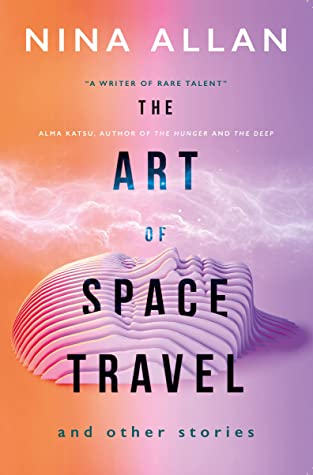
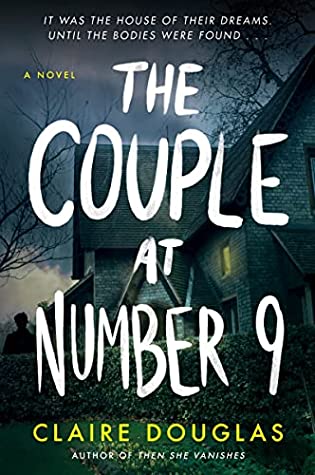
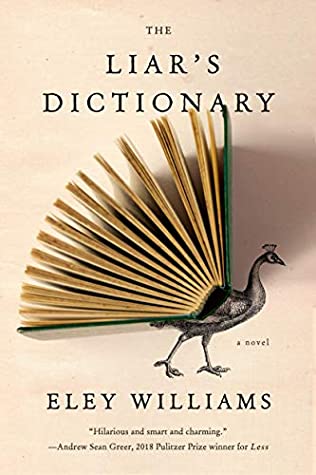
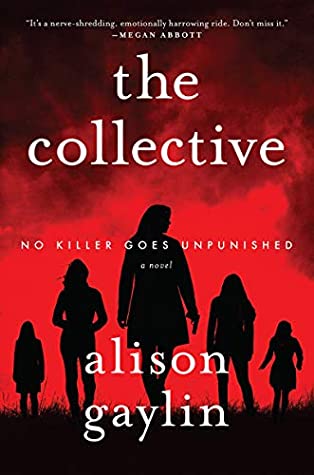
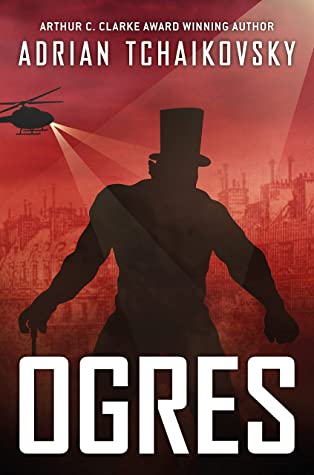
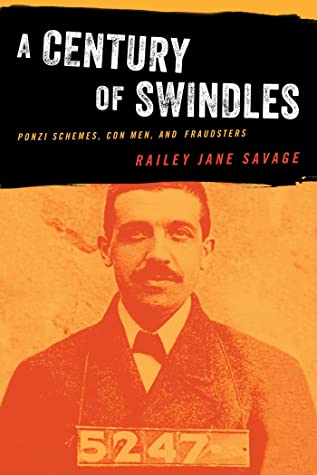
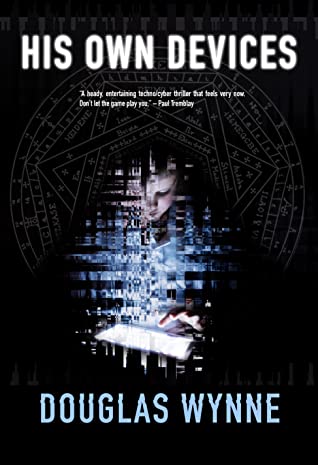
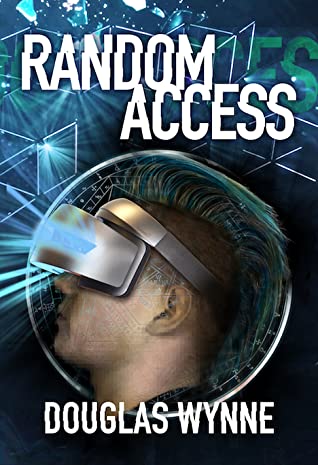
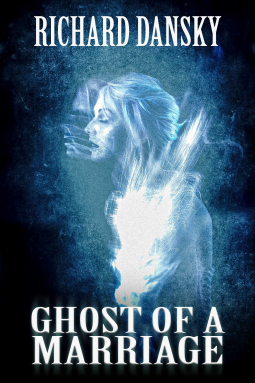
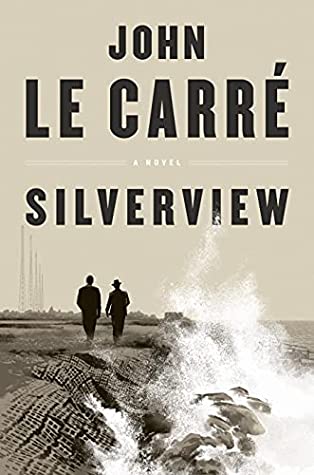
 RSS Feed
RSS Feed
